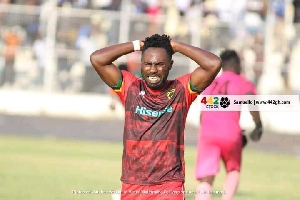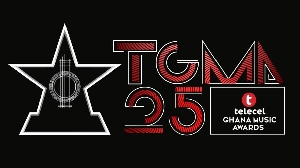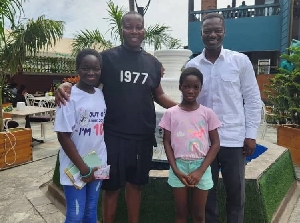Opinions of Monday, 9 September 2013
Columnist: Okoampa-Ahoofe, Kwame
Supreme Court Judges Are Not Angels
By Kwame Okoampa-Ahoofe, Jr., Ph.D.
I am not here to defend anybody; I write only make certain and clear the fact that in any constitutional democracy, such as Ghana's, citizens have a right to criticize both the actions and opinions of members of the highest court of the land, however distasteful such cavilling may be deemed (See "I Won't Retract My Comments on SC Judgment - Gabby" Citifmonline.com/Ghanaweb.com 9/5/13).
Here in the United States, there is the celebrated case of President Barack Obama's caustic carping of Chief Justice John Roberts over the POTUS' comprehensive healthcare and insurance policy. I believe this was during one of Mr. Obama's State-of-the-Union addresses, with Justice Roberts seated smack within the crosshairs of the President - no pun intended here, of course.
What is significant to observe here is the fact that the high-powered criticism which at the time was considered to be "highly unusual," and even unprecedented, may well have had the equally unusual but patently salutary impact on the Chief Justice of the United States (CJOTUS); for Mr. Roberts would shortly go on to vote in favor of the Obama healthcare policy to which he had initially been vehemently opposed.
Among the Akan, there is a constructive maxim which goes as follows: "The pathmaker/-cutter oftentimes is unaware of the crookedness of his/her path. It often befalls the passerby/onlooker to point out this [civil engineering] error to the pathmaker/-cutter." In other words, even the foremost perfectionists among us often require a modicum of constructive criticism to set them aright, or keep them on track.
My problem with the Director of the Danquah Institute's attempt to justify his characterization of the Election 2012 Presidential Petition verdict by the Supreme Court as "corrupt," is the critic's tentativeness towards the same. In riposte to his critics, some of whom are vicariously demanding an apology, Mr. Gabriel Otchere-Darko uncomfortably quibbled by rather lamely claiming that his was a criticism against a judgment and not the persons of the nine jurists who heard the petition. In other words, Mr. Otchere-Darko's criticism was anything but ad-hominem, or a personal attack.
Well, since the judgment came from the cognitive - or mental - faculties of the judges, the critic cannot sincerely describe such judgment as "corrupt" without being envisaged to have insulted the intelligence of the decision-makers, as it were. I actually admire his flat refusal to apologize for having taken a negative stance against the verdict of the Atuguba-presided court. However, Mr. Otchere-Darko needs a far better reason than mere semantic quibbling to justify his assertion.
In other words, either the critic is informed by the courage of his convictions or he is simply making a gratuitous assertion purely based on the utilitarian principles of a political opportunist. I make the foregoing observation because shortly before the Supreme Court verdict came down, Mr. Otchere-Darko was frantically and fanatically defending the moral and professional integrity of the nine judges, and even vehemently debunking some rumors that the Danquah Institute (DI) director claimed were being flagrantly circulated about the judges that he, personally, deemed to be very offensive and unacceptably defamatory. Earlier on, he had profusely apologized for presuming to impugn the motives of the Atuguba panel.
In sum, I find Mr. Otchere-Darko's criticism of the Atuguba panel to be too inconsistent and erratic to be taken seriously, although I also believe that any self-righteous attempt by anybody to draw in the General Legal Council, with the express aim of getting the DI chief professionally sanctioned, ought to be deemed to be highly suspect, quixotic, presumptuous and anti-democratic, particularly coming from a petitioner who is neither a certified dues-paying member of the Ghana Bar Association (GBA) nor a bona fide member of the judicial establishment.
__________________________________________________________
*Kwame Okoampa-Ahoofe, Jr., Ph.D.
Department of English
Nassau Community College of SUNY
Garden City, New York
Sept. 5, 2013
###












